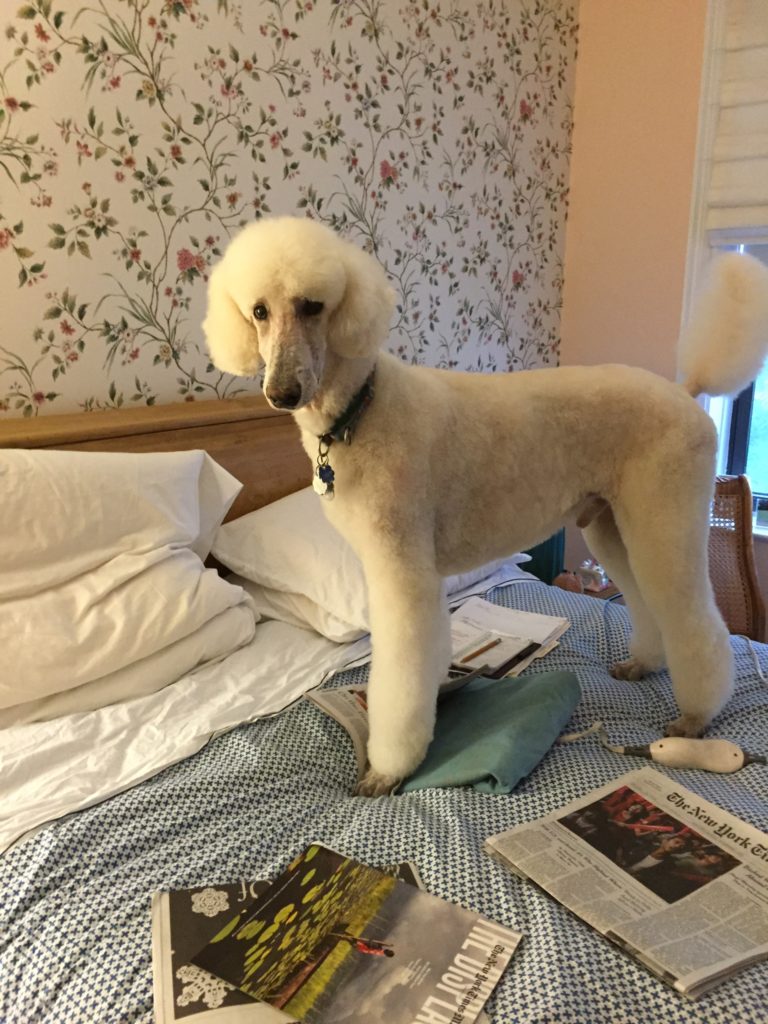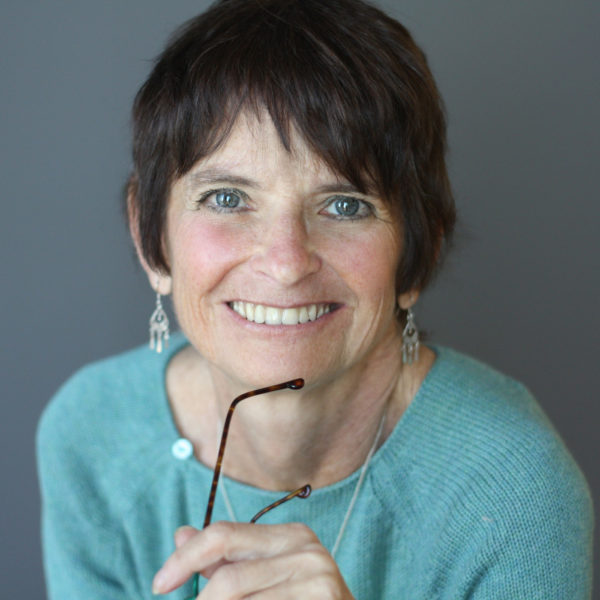
Image by Jane Gross.
Hallucinations and Grief
Since my concussion a few weeks ago, which has taken far longer to heal than I could have guessed, my beloved dog Henry, an 11-year-old Standard Poodle, is with his dog sitter in Pennsylvania rather than with me in New York City.
I can’t take care of him until I’m steadier on my feet, given that he weighs 50 pounds and I barely hit 90, have the bad bones that come with age for some women, and am scared I’ll fall and break a hip walking him. I’ll up his daily walks from one to two when he returns, but that still leaves me as Dog-Walker-In-Chief first thing in the morning and last thing at night.
Every few days, I convince myself I’m ready to bring him home and then good sense prevails and I extend his stay. His second mom, because surely that’s what Denise is, sends me notes as if he had written them, including emoticons of doggy footprints:
Hi mom I’m fine. Just finished dinner. Please rest and get well. I’m being well cared for. Love u. Henry
She also sends photos on an almost daily basis. He is filthy from playing outside with other dogs and will need a major grooming, but looks like he’s having a blast.
I cry and wonder if he’ll remember me. My brother, a longtime dog owner, assures me he will. “They love whoever feeds them,’’ he says.
In the kitchen are his empty stainless steel food and water dishes, shimmering in the afternoon sun. The canister that usually holds his food is empty; time has passed and his stay has been extended, so Denise comes every few days to pick up more. That means before he comes home, I must not only be able to walk him but also able to carry home a huge bag of dry Nutro Silver and a several six-packs of the same brand in the canned and wet variety. (New Yorkers don’t run errands by car, as few of us have one.)
When I was examined recently by my diligent neurologist, she asked if I was having hallucinations — along with the headaches, dizziness, sensitivity to light, and periodic cognitive lapses I’d reported. I paused before answering, not because of the brain fog but because I was seeing and hearing things, yet wasn’t sure these particular sights and sounds qualified.
I wake at night thinking I can hear the jangle of his dog tags or the clatter of his toenails on the hardwood floors. I reach for him in bed where he usually sleeps. No Henry, so I substitute a heating pad to help me pretend, which of course doesn’t work. A few times I’ve dreamt he was standing in the bedroom door, staring at me with an odd mix of love and reproach. When I open my eyes, he is gone; I’m momentarily surprised and unutterably sad.
There’s a spot on the living room floor where he often sleeps when I’m watching television, just outside my peripheral vision. I see him there, too, then turn his way and he’s gone, but gradually, fading before my eyes like an apparition. Hardest of all is the imagined sound of a key in my front door, as if Denise were bringing him home after a walk. That’s when he bounds toward me, at the computer, wanting a welcoming smooch.
Me, too, Henry. Me too.
After describing all this to the neurologist, in embarrassingly granular detail, she smiles, faintly. “That’s not a hallucination,” she says. “That’s grief.”
We stare at each other for a long moment. “Is that the good news,” I ask, “or the bad news.
All she can do is shrug.
